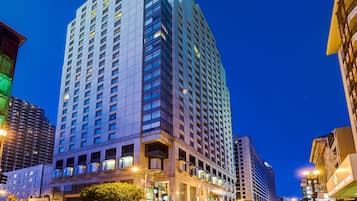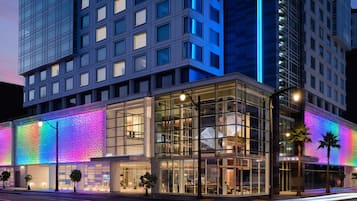The USS Hornet - Sea, Air and Space Museum is a unique and fascinating ship museum that houses exhibits on space missions and retired aircraft. Offering collections like the NASA Apollo Moon exploration exhibits and decommissioned aircraft from World War II, all on a retired aircraft carrier, you could spend hours exploring the museum.
The tour of the ship museum is mostly self-guided, but there are plenty of volunteers throughout that are happy to answer any questions and educate you on any part of the ship’s history to enhance your experience. Tour maps and audio tours are also available if you would like in-depth information on the exhibits during your visit.
USS Hornet - Sea, Air, and Space Museum in San Francisco - one of the highlights of 12 Best Museums in San Francisco (Read all about San Francisco here)
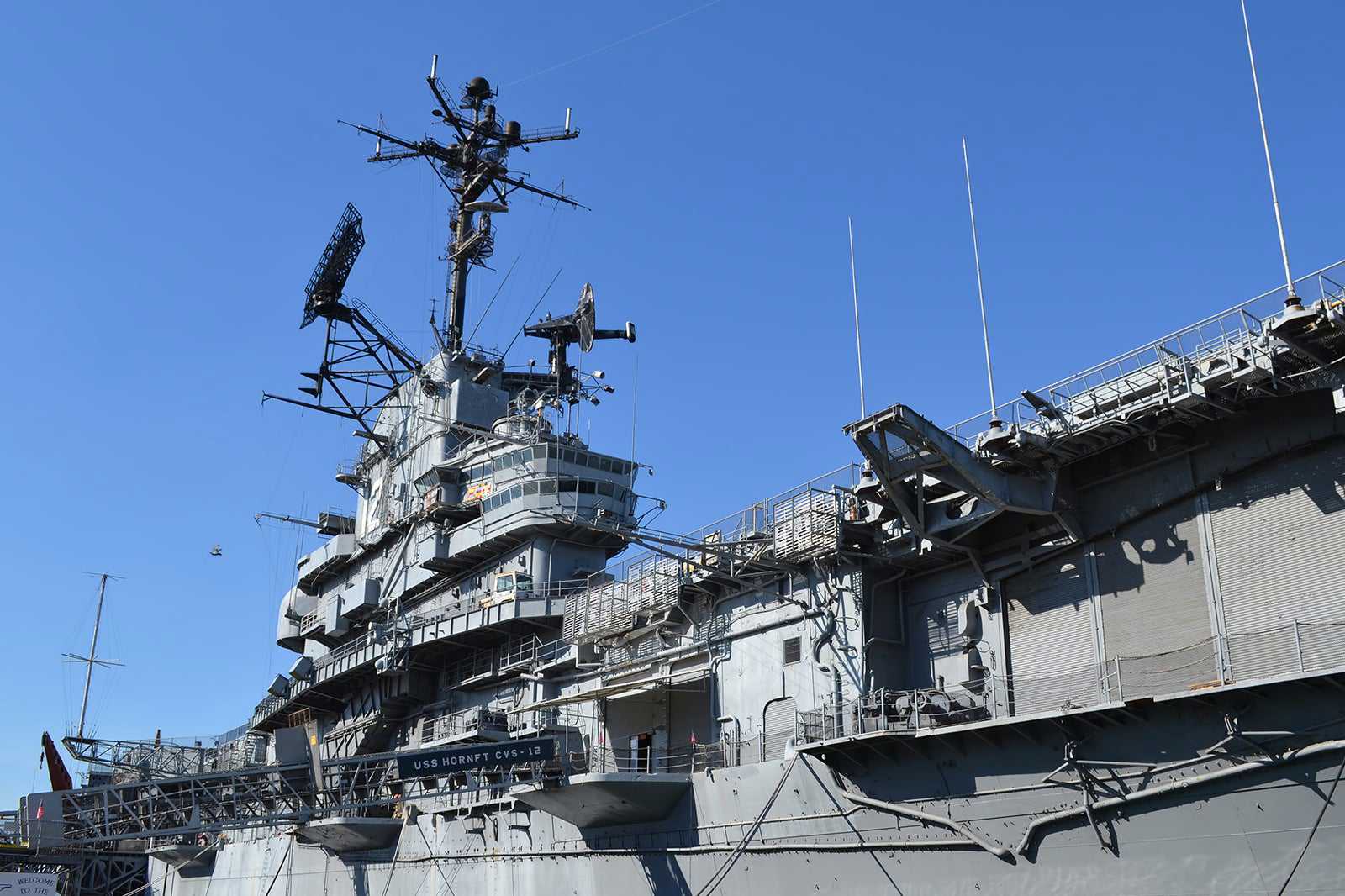
foto dari Oleg Alexandrov (CC BY-SA 3.0) dimodifikasi
Highlights of the USS Hornet - Sea, Air, and Space Museum
The USS Hornet offers a wide range of aircraft on display from the 1940s to the 1970s, including propeller and jet aircraft. Some of the highlights include the SH-2 Seasprite, a shipboard utility helicopter, a TBM-3E Avenger WWII torpedo bomber, and an FM-2 Wildcat WWII fighter plane. The USS Hornet was also the Prime Recovery Ship for the Apollo 11 Moon mission and part of the splashdown programme, so you’ll see numerous exhibits that include flight test craft, the quarantine facility for returning astronauts, and photographs from the splashdowns.
In the Apollo Splashdown exhibit, you will find a full-sized helicopter that helped in Apollo 11 and 12 missions that would retrieve the landing module out of the water and then fly back to the USS Hornet. The unique exhibit is sure to delight any fan of the space programme.
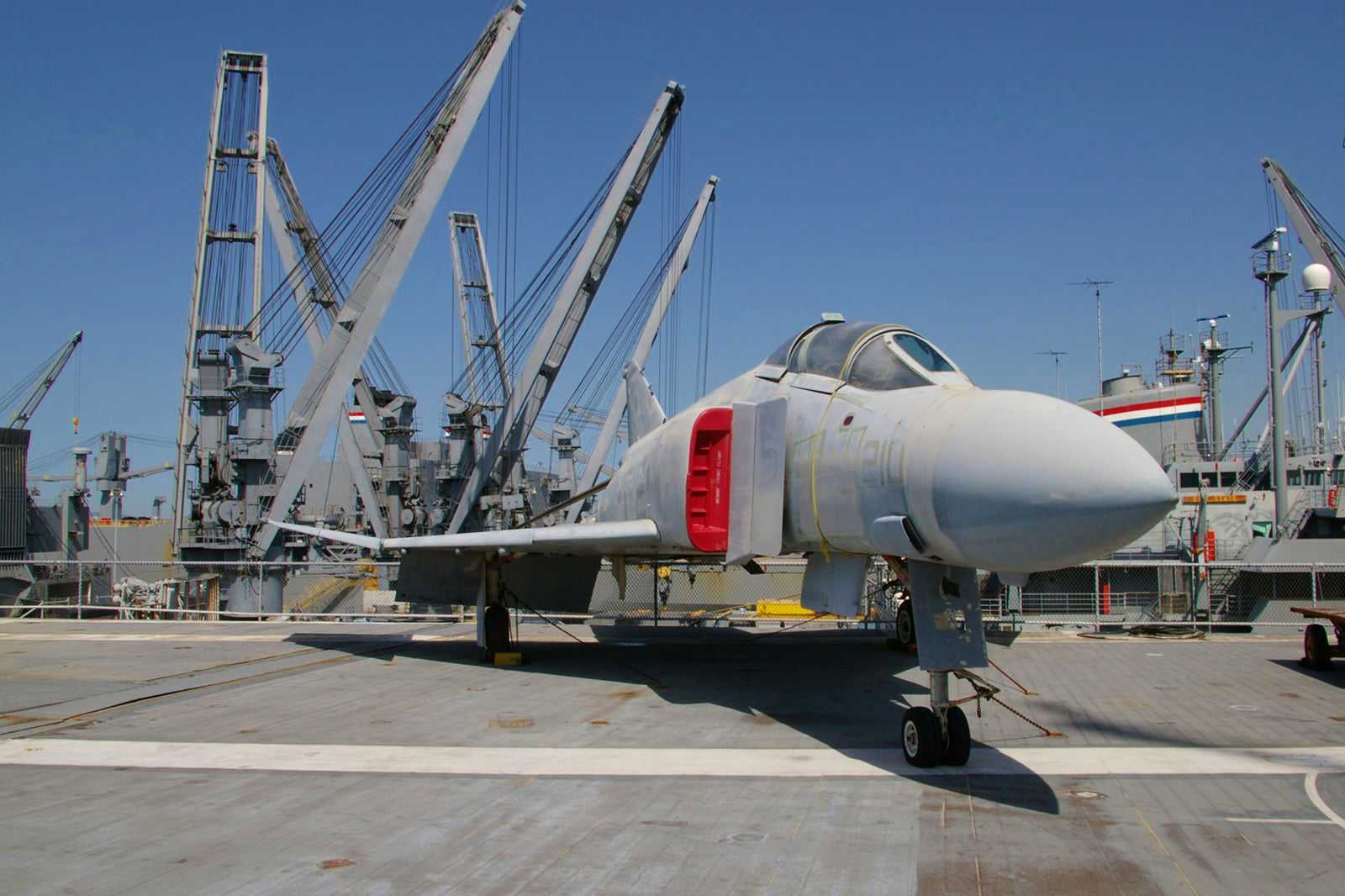
History of the USS Hornet - Sea, Air, and Space Museum
The USS Hornet - Sea, Air, and Space Museum is part of the Smithsonian Affiliations programme, joining organisations in 46 states and Puerto Rico. Opening on October 17, 1998, the museum’s vision was to expand knowledge and inspire learning while preserving heritage. Apollo 11 astronaut Buzz Aldrin gave the opening speech at the National Historic Landmark, as the USS Hornet retrieved him and fellow astronauts Neil Armstrong and Michael Collins after they became the first men to walk on the moon.
The USS Hornet, an Essex class aircraft carrier, had a long and storied career, launching on August 31, 1943, and retiring on June 26, 1970. Her first mission in 1944 was during the Asia-Pacific War and her main task was to be the Navy’s primary offensive force. Her last missions were with the Apollo Space Programme, recovering astronauts as they returned from the moon.
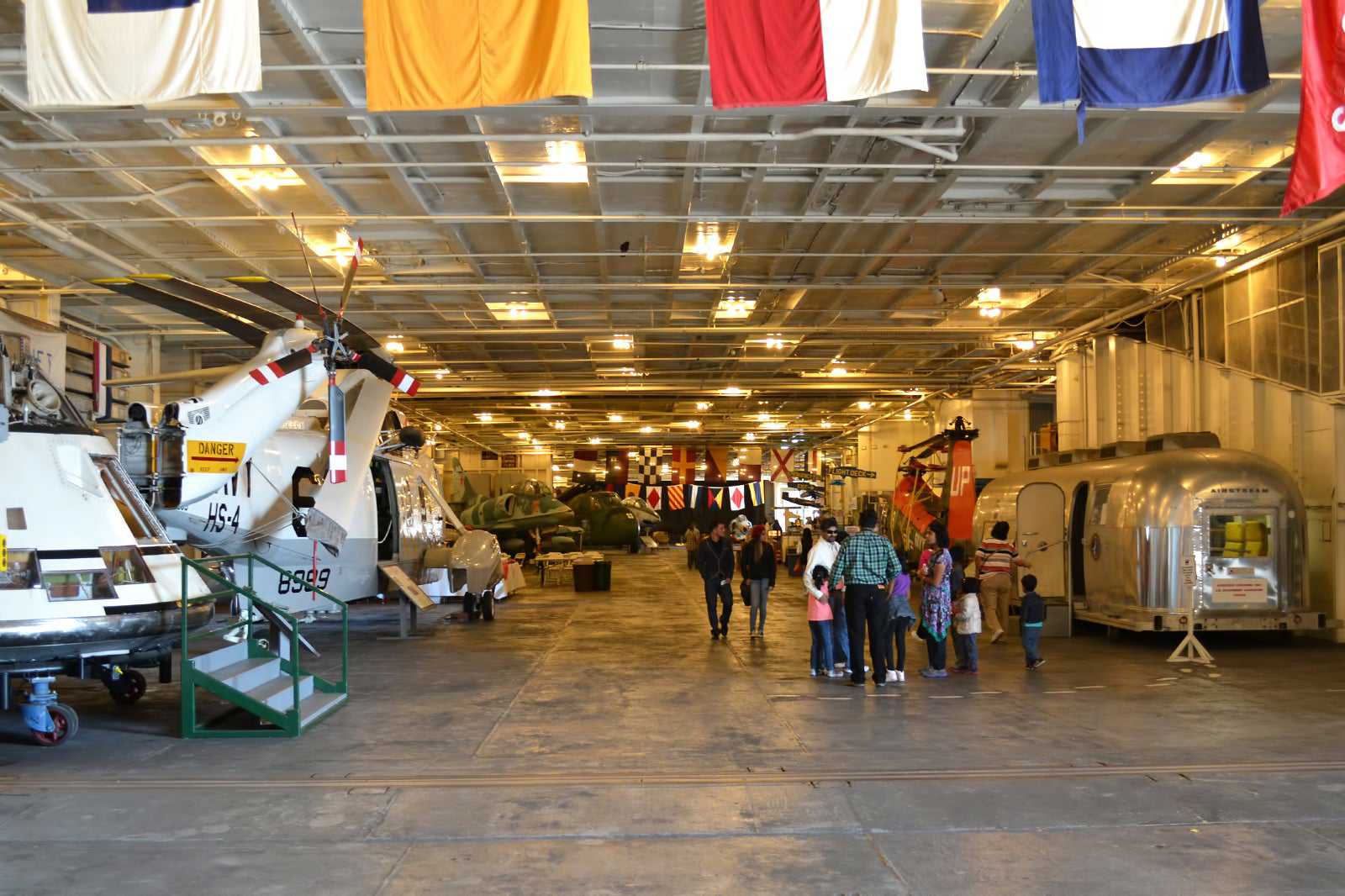
foto dari Oleg Alexandrov (CC BY-SA 3.0) dimodifikasi
Good to know about the USS Hornet - Sea, Air, and Space Museum
Before heading down to the museum, check online for updated information, directions, and the best places to park for easy access. The website for the museum also gives you additional information to help plan your visit, as well as different tours and experiences like the Escape Room or the History Mystery Tour. While you are online, you might want to check out what is around the museum to make plans for after your visit to the USS Hornet.
You will be on your feet for several hours, so be sure to wear proper footwear. Also, keep in mind that part of the tour will be outside and could be slippery if it rains, so you’ll want to wear comfortable, non-slip footwear.
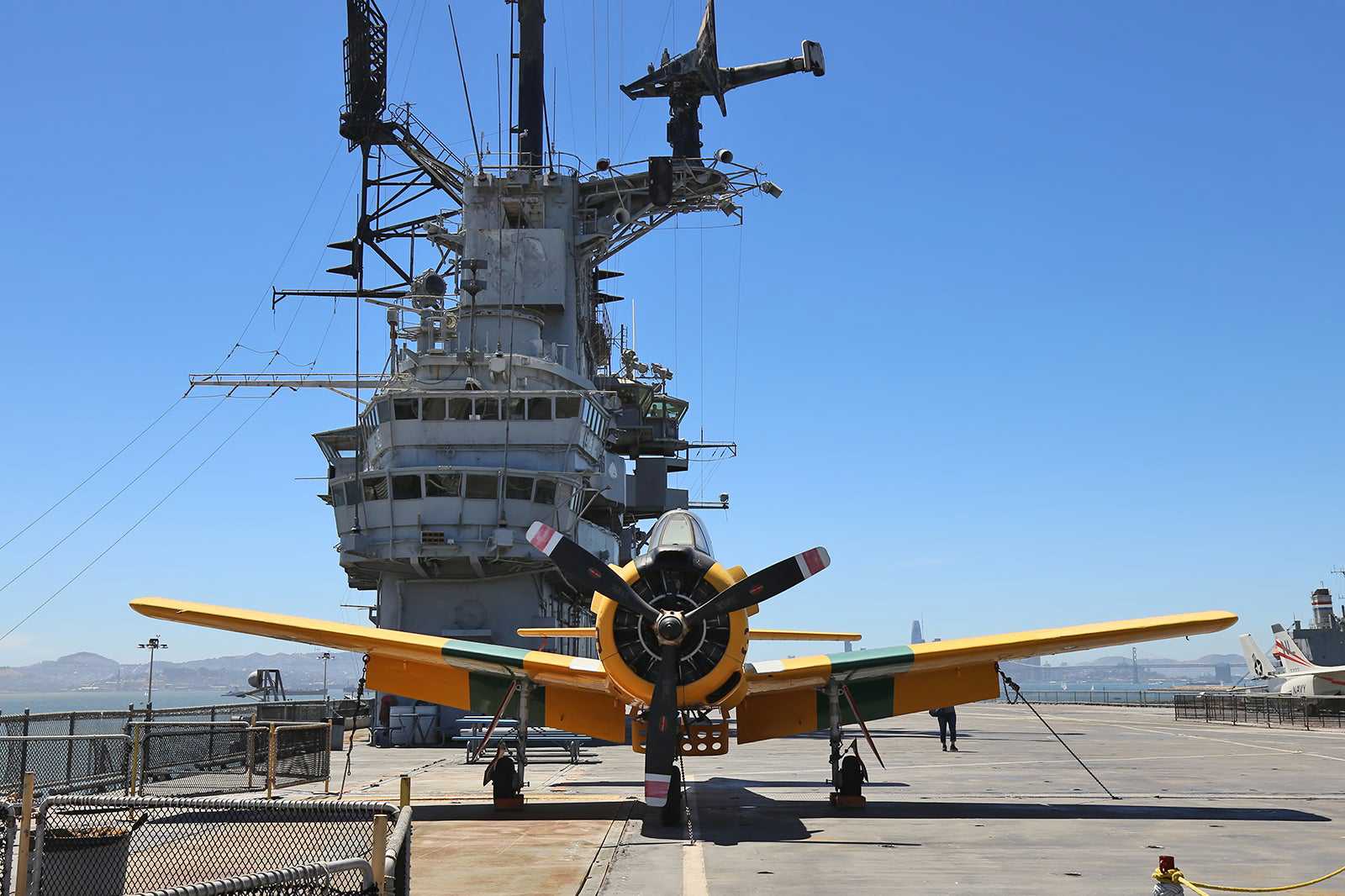
USS Hornet - Sea, Air, and Space Museum in San Francisco
Lokasi: 707 W Hornet Ave, Alameda, CA 94501, USA
Buka: Saturday–Sunday 10 am to 5 pm (closed Monday–Friday)
Telepon: +1 510-521-8448



